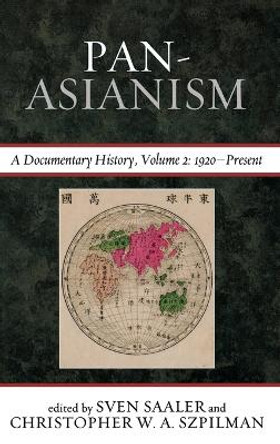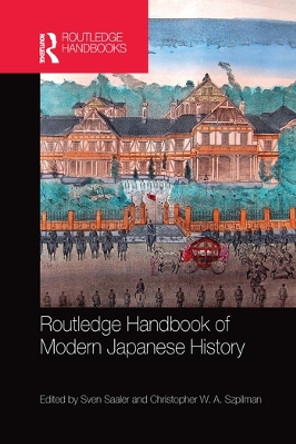Description
Regionalism has played an increasingly important role in the changing international relations of East Asia in recent decades, with early signs of integration and growing regional cooperation. This in-depth volume analyzes various historical approaches to the construction of a regional order and a regional identity in East Asia. It explores the ideology of Pan-Asianism as a predecessor of contemporary Asian regionalism, which served as the basis for efforts at regional integration in East Asia, but also as a tool for legitimizing Japanese colonial rule. This mobilization of the Asian peoples occurred through a collective regional identity established from cohesive cultural factors such as language, religion, geography and race. In discussing Asian identity, the book succeeds in bringing historical perspective to bear on approaches to regional cooperation and integration, as well as analyzing various utilizations and manifestations of the pan-Asian ideology.
Pan-Asianism in Modern Japanese History provides an illuminating and extensive account of the historical backgrounds of current debates surrounding Asian identity and essential information and analyses for anyone with an interest in history as well as Asian and Japanese studies.
About the Author
Sven Saaler is Associate Professor at the Graduate School of Arts and Sciences, University of Tokyo. He was formerly head of the Humanities Section of the German Institute for Japanese Studies (DIJ) in Tokyo.
J. Victor Koschmann is Professor of History at Cornell University where he has specialized in modern Japan's intellectual and cultural history with reference to political thought.
Reviews
'This volume is indispensable for understanding the intellectual history of Pan Asianism and to help understand current debates over Japan's wartime past. Recognizing the vast gap between rhetoric and reality, here the contributors help unravel the idealism that animated elite discourse and how this was used to indoctrinate and mobilize the Japanese people in a war that mostly victimized those who were supposed to benefit. One can only hope for a companion volume of similar quality focusing on regional discourse about Japanese Pan Asianism.'
'The 15 essays in this volume take the debate beyond how the ideology was instrumentalized and draw our attention to the intellectual history of Pan Asianism and how it morphed over the past century. These are detailed and complex scholarly essays that help readers understand that Pan Asianism was neither monolithic nor set in concrete.' - The JapanTimes Online
"...this collection should be required reading for graduate students and scholars of Japan who are interested in the complex and often contradictory relationship between the holy trinity of modern Japanese history--empire, nation, and state." - Bill Mihalopoulos, Journal of Asian Studies
'This volume is indispensable for understanding the intellectual history of Pan Asianism and to help understand current debates over Japan's wartime past. Recognizing the vast gap between rhetoric and reality, here the contributors help unravel the idealism that animated elite discourse and how this was used to indoctrinate and mobilize the Japanese people in a war that mostly victimized those who were supposed to benefit. One can only hope for a companion volume of similar quality focusing on regional discourse about Japanese Pan Asianism.'
'The fifteen essays in this volume take the debate beyond how the ideology was instrumentalized and draw our attention to the intellectual history of Pan Asianism and how it morphed over the past century. These are detailed and complex scholarly essays that help readers understand that Pan Asianism was neither monolithic nor set in concrete.' - The JapanTimes Online
'Collectively, these essays provide us with the most diversified perspectives on Japanese Pan-Asianism ever brought together in one volume. In them, we can sec how the idea engaged the interest, sympathies and even the passions of a range of Japanese thinkers, publicists, politicians and reformers due, undoubtedly, to the elastic nature of the concept, which offered something to a range of Japanese interests.' - Pacific Affairs
'This collection of essays is brimming full of ideas that cannot fail to provoke and questions that will become future research topics. Although some of the essays are too densely written for most undergraduates, this collection should be required reading for graduate students and scholars of Japan who are interested in the complex and often contradictory relationship between the holy trinity of modern Japanese history-empire, nation, and state.' - BILL MIHALOPOULOS, Northern Michigan University, The Journal of Asian Studies Vol. 67, No. 3 (August) 2008
Book Information
ISBN 9780415372169
Author Sven Saaler
Format Paperback
Page Count 304
Imprint Routledge
Publisher Taylor & Francis Ltd
Weight(grams) 560g




